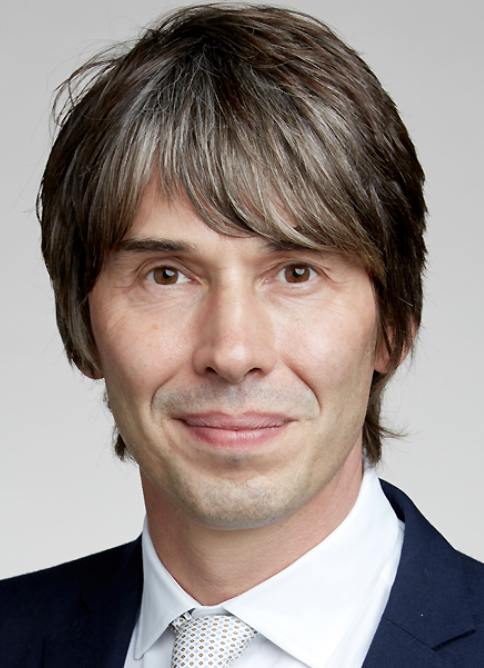On this date in 1968, Brian Edward Cox was born in Lancashire, England. After completing his secondary education, Cox joined the rock band Dare as a keyboardist. Following the band’s breakup, Cox enrolled at the University of Manchester to study physics. He continued his career in music, playing with the pop band D:Ream, while receiving his B.Sc. and M.Phil degrees. D:Ream had several hits on the UK charts, including “Things Can Only Get Better,” a No. 1 hit.
As of this writing he works as a particle physicist at the University of Manchester and at the Large Hadron Collider near Geneva, Switzerland. He married Gia Milinovich in 2003 and they have one child. He was elected in 2016 as a Fellow of the Royal Society, the UK’s national academy of sciences.
Cox is best known for his science outreach to the general public and has appeared on numerous BBC television and radio programs. Cox also lectures widely, has given several TED talks, and has co-authored several books about physics, including 2009’s Why Does E=mc²? (And Why Should We Care?).
Cox is a strong advocate for science education and government funding of scientific research. Asked by the Guardian (March 6, 2010) if he has “ever believed in God,” Cox replied, “No! I was sent to Sunday school for a few weeks but I didn’t like getting up on Sunday mornings. But some of my friends are religious. I don’t have a strong view on religion, other than illogical religion. Young earth creationism, for example: bollocks.”
Cox says the label of atheist does not apply to him because there is so much that is unknowable. His story “The Large Hadron Collider: A Scientific Creation Story” was one of 42 included in “The Atheist’s Guide to Christmas” in 2009. From the essay: “When the pattern of atoms known as you ceases to be, the building blocks will return to the voids of space and in a billion years or more they may take their place in another structure so beautiful that a future mind may perceive it to be the work of a god.”
PHOTO: The Royal Society


